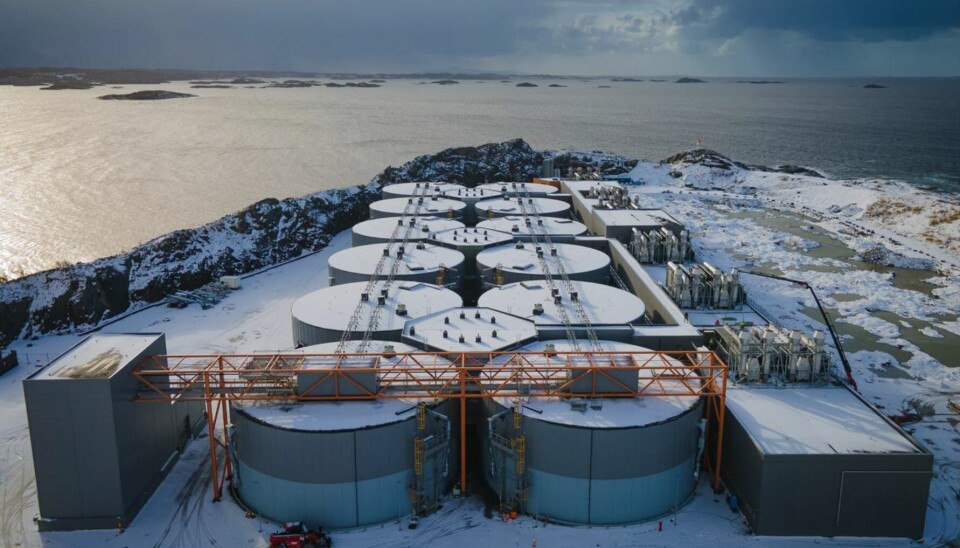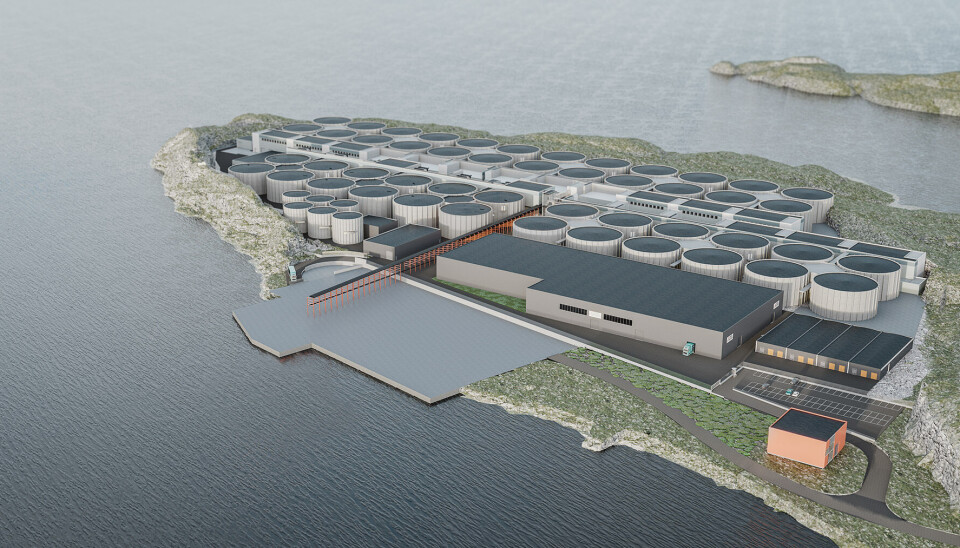
Salmon Evolution raises £40m from share sale
Cash will help fund second phase of 31,500-tonne fish farm
Land-based fish farmer Salmon Evolution has raised around NOK 525 million (£40m) through a private placement of new shares yesterday, it said today.
The net proceeds from yesterday’s placement are intended to be used partly to finance the current estimated equity share of phase 2 of the facility at Indre Harøy of Norway’s west coast and partly for general company purposes.
The Norwegian company allocated 68,181,818 new shares at a subscription price of NOK 7.7 per share. Existing shareholders including Ronja Capital II AS, Farvatn Private Equity AS and Kjølås Stansekniver AS, pre-committed to shares worth approximately NOK 80m in total. Ronja Capital II is a family investment company owned by Roger Halsebakk, founder of the world’s largest wellboat company, Sølvtrans.
Building to 7,900 gwt
Salmon Evolution is now planning to raise a further NOK 50m by issuing up to 6,500,000 new shares at the same price to existing shareholders who were not allocated shares in yesterday’s private placement.
Salmon Evolution has completed phase 1 of its facility which will produce 7,900 gutted weight tonnes of salmon annually once full production is reached over the next year. Phase 2 will also produce 7,900 gwt, and a third phase will produce a further 15,700 gwt, taking total annual production up to 31,500 gwt by 2028.
The company is also involved in a joint venture with Dongwon Industries to produce 16,800 gwt of salmon annually in South Korea and is seeking a site for a 31,500 gwt farm in North America.
























































